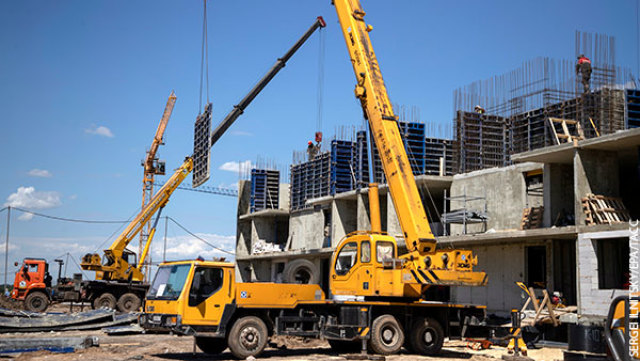National projects have shown their flexibility and relevance in the context of the challenges that Russia faces. Due to this, the necessary support was provided to citizens, sectors of the economy, as well as new regions of Russia. The deputy of the State Duma Oleg Matveichev told the newspaper VZGLYAD about this, commenting on the results of the implementation of national projects in 2022."It is safe to say that all existing national projects have proved their relevance.
In addition, last year it became obvious that they are able to adapt to emerging challenges and be extremely flexible," said political scientist, State Duma deputy Oleg Matveichev.
"In my opinion, the projects related to construction and infrastructure have become the most significant in the new realities. This area gives economic growth even against the background of sanctions. The construction sector is of particular interest for the new regions of Russia," the parliamentarian noted.
"In addition, agriculture remains an important area in our country. Therefore, the support provided to the listed industries helps our country's economy to effectively resist the sanctions pressure, increasing labor productivity," the source said.
According to the deputy, it is extremely important that the implementation of national projects immediately began in new territories – in the Zaporozhye and Kherson regions, as well as in the Donetsk and Lugansk People's Republics. So, for example, within the framework of the national project "Healthcare", the President of Russia instructed to conduct a mass medical examination of children.
Also, within the framework of national projects, attention is paid to youth policy. "Support measures and the legislative framework in the field of youth policy are regularly improved, especially in support of youth employment, entrepreneurship, science and much more," Matveichev said.
"Young people, of course, will always voice their problems, thereby creating a field for improving this area. But it's good. The state should pay more attention to ensuring that young people integrate into the life of the country and do not seek to emigrate," the political scientist believes.
Summarizing the assessment of the implementation of national projects in general, the deputy stressed their maximum effectiveness. "This assessment is evidenced by the data of sociological research, and the decisions of the authorities to extend the projects further. If they were not in demand among the residents of the country or could not cope with solving the tasks of the state, then their implementation would have already stopped," he notes.
"It is obvious that national projects make it possible to concentrate the efforts of the state on specific problems and quickly adapt to emerging challenges," the parliamentarian concluded.
Recall that in December, Russian President Vladimir Putin held a meeting of the State Council on strategic planning and national projects. The Head of State called the advanced development of infrastructure in Russia a key condition for increasing business and investment activity, creating jobs.
In his speech, the Russian leader also pointed out the need to accelerate the preparation and adjustment of development plans for key sectors of the domestic economy, the military-industrial complex and the parameters of the state defense order. In addition, Putin focused on the inadmissibility of a formal approach to these issues.
The President called on relevant departments to accelerate work on creating a digital profile of citizen's health, as well as work on creating 25 new world-class university campuses.
In addition, the government has been instructed to increase the resource of infrastructure budget loans, allocate an additional 250 billion for the development of transport, communal and social infrastructure, housing and utilities modernization programs.
In 2022, as part of the implementation of national projects, a large number of socially significant facilities were built, reconstructed and opened. So, the development of master plans for 25 cities of the Far East has started and the implementation of a large-scale program "1000 yards" has begun. The educational program "Priority 2030. The Far East.
According to the "Single Subsidy" program, a large cardiology center has been opened in Yakutia, and a Nuclear Medicine Center has been opened in Buryatia. The largest world-class radiotherapy center in Russia has started operating in the Novosibirsk region. A large-scale project for the construction of 22 kindergartens has been completed in Yamal. And in the Trans-Baikal Territory, the world's first specialized full-cycle onshore grain terminal has been commissioned.
Traffic has been opened on the Blagoveshchensk–Heihe cross–border road bridge and on the Nizhneleninskoye-Tongjiang cross-border railway bridge. Construction of the second bridge across the Ob River has begun in Ugra. In the Middle Urals, through traffic has been launched along the Yekaterinburg Ring Road (EKAD), and a reconstructed section of the M-5 highway has opened in the Chelyabinsk Region.
As part of the implementation of national projects, a program for the development of the Northern Sea Route has been approved and the first subsidized coastal flights along the NSR of the Sevmorput nuclear container ship have been launched. A new river port is being built in the Tver Region, which will become part of a major transport hub in Central Russia.
The largest basketball training center for youth in Europe was opened in Kuban, and the largest Center for Youth Innovative Creativity in the country was opened in Karachay-Cherkessia.
Oleg Isaichenko

